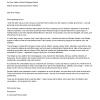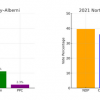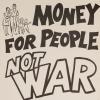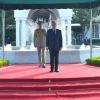4th January 2023
Lloyd J. Austin III
Secretary of Defense
1000 Defense Pentagon
Washington, DC 20301-1000
Kathleen H. Hicks
Deputy Secretary of Defense
1010 Defence Pentagon
Washington, DC 20301-1010
Dear Secretary Austin & Deputy Secretary Hicks
Freedom of Speech and National Security have always been at odds with each other, chiefly among the military ranks. In the past century, military members were censored on multiple occasions. During World War Two, Vietnam, Korea, the Persian Gulf, and the Iraq and Afghan wars, servicemen and women were subjected to screenings of their letters, phone calls, and, more recently, social media.
Censorship can protect National Security. The Encyclopedia of World Problems claims, “[In a Democracy,} the public is entitled to know what its government is doing even during wartime, provided that information does not endanger national security or the safety of troops.” The protection of troops always outweighs the argument for Free Speech and the Freedom of the Press. During the Second World War, the United States military would censor letters “to ensure that no useful information would fall into enemy hands should mail be intercepted.” Censored details included “mention of their geographic location, [and] any indication of the strength or numbers of their battalions.”(Hoover Institution Library and Archives) Censorship after the Pearl Harbor attacks forced servicemembers to fill out a form, adding, “If anything else is added, the postcard will be destroyed.”(Naval History and Heritage Command) Censorship would pay off as intercepted letters provided no aid to the enemy.
Recently, autobiographies and memoirs by Special Operations Soldiers were heavily reviewed by the CIA and other institutions to ensure that no names and details of operators were released to the general public. This censorship stopped domestic terrorist attacks targeting service members.
Censorship could break National Security as well. First, censorship can destroy morale. During World War 2, mail “took an agonizing six weeks to reach the mainland.” (Naval History and Heritage Command) Service members had to wait many weeks to receive a letter from their loved ones at home. Not hearing from their spouse, married soldiers could be led to believe their spouse forgot about them and no longer loves them. Those that left while a family member was ill, without any news from home, could believe their loved one had passed. After the 9/11 terrorist attacks, censorship of servicemembers intensified.
Military censorship can also harm retention efforts, leading to isolation and disconnection among service members. When service members cannot freely communicate with the outside world, they may feel disconnected and disconnected from their friends and family, which can lead to a decrease in morale and an increase in the likelihood of service members choosing to leave the military.
Censorship has negative impacts on military recruitment. Many young individuals join the military because they believe in its values and missions. In the year following the devastating 9/11 terrorist attacks, over 181 thousand Americans enlisted into Active Duty while over 72 thousand joined Military Reserves. (United Service Organizations) By 2005, Active Duty enlistments decreased to 152,160, while 45,859 joined the enlisted reserves. (Copp) Pentagon data shows that “77% of youth 16 to 24 years old are not qualified for military service without waivers.” (Tiron) Out of those eligible, a majority - 52%- have never considered the military as an option. Censorship has a role in these numbers. Due to censorship, less news of the military is released by individual servicemembers, leading to an uninformed population. Youth are less likely to hear of the benefits of joining the military when individual servicemembers cannot share information freely. When the consequences of leaking information are this high, potential servicemembers are less likely to enlist and aid the United States Military.
One of the primary ways military censorship negatively impacts recruitment is by limiting the ability of service members to share their experiences and perspectives with the general public. In today's Social Media and online communication age, servicemembers are often the best ambassadors for military service, sharing their experiences and stories with friends, family, and the public. However, when service members must follow strict censorship rules, they often cannot share these stories and experiences, making it more challenging to attract recruits.
Furthermore, military censorship can harm society's overall perception of the military. When the public cannot hear directly from service members about their experiences and perspectives, it can lead to a lack of understanding and appreciation for the work that military members do. In 2017, the US National Survey of Defense Attitudes showed that 70% of the American Population had “A Great Deal” trust in the military. (Ronald Reagan Presidential Foundation & Institute, “2018 National Defence Survey”, Slide 7) The same survey in 2022 showed a 22% drop in “A Great Deal” of confidence in our military. (Ronald Reagan Presidential Foundation & Institute, “2022 National Defense Summary”, Slide 14)
Freedom of expression does not mean that military personnel can say or do anything they want without consequence. There are limits to free speech, and military personnel are subject to specific regulations and codes of conduct that must be followed. However, these regulations and codes should be narrowly tailored to address legitimate concerns and not be used as censorship or control.
To address these issues, the following policies should be implemented to decrease the use of censorship and decrease its harm.
First, create an independent censorship committee. The committee's formation would be expensive, but the benefits would far outweigh the cost. This committee will decide what is and is not censored within the military ranks. This committee would also be a board that military members and family members could take complaints of excessive censorship to, hoping for a remedy and the betterment of the military. Objections would be received via a hotline and evaluated regardless of race, sex, political party, etc. Those who file a report with the committee will not be punished to encourage speaking out about injustices. The committee would review cases and judge whether censorship was unjust or justified. To provide professional oversight, high-ranking officers from all branches and the CIA would be present.
Second, provide training and education on the appropriate handling of sensitive information. Stress the importance of protecting classified information and guidance on handling sensitive information in a way that promotes transparency and accountability. Accidental leaks are less likely to occur with a better-informed military population.
Lastly, establish clear guidelines for what can and cannot be censored. These guidelines will ensure that censorship is used only in cases vital for national security rather than to suppress dissent or cover up mistakes. As mentioned earlier, these guidelines would be the primary tool used by the committee.
I hope these suggestions will help address military censorship issues and increase National Security. Thank you for considering my ideas and for your continued commitment to the safety and security of our nation. I am eager to hear your response on this topic.
Sincerely,
Luke















